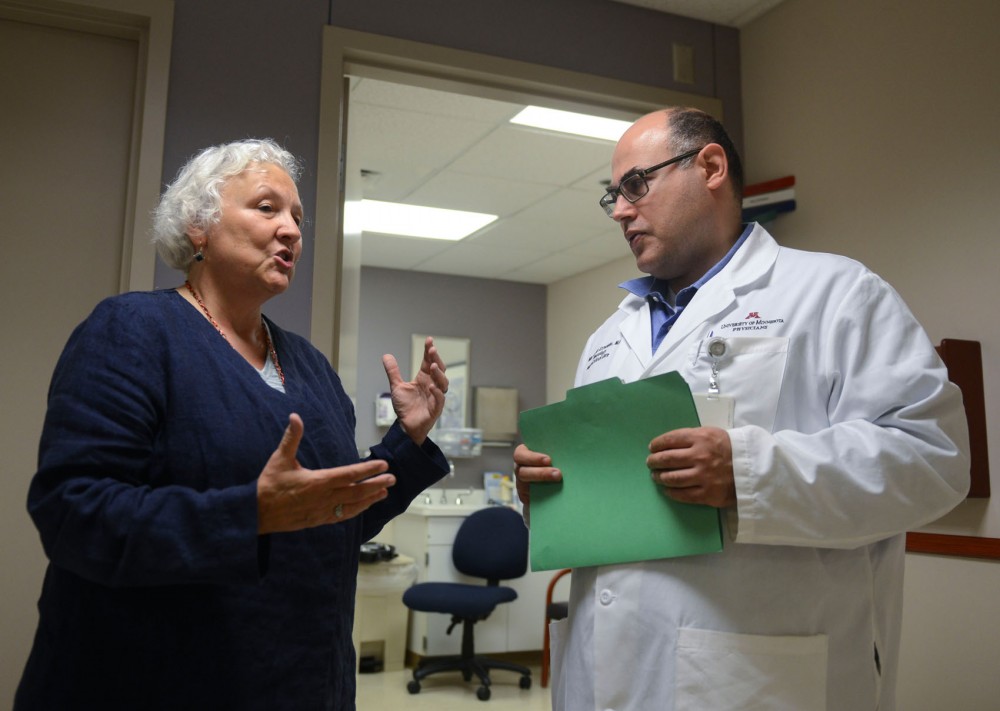University of Minnesota researchers will take part in a national effort to find new stroke prevention, treatment and recovery methods.
This summer, the University will begin its work with the National Institutes of Health’s StrokeNet — a network of 25 institutions nationwide focused on stroke research — after recently receiving funding for research and the training of stroke clinical researchers.
“The purpose of this network is to really create an infrastructure, a tool, to run these high-impact clinical trials,” said Mustapha Ezzeddine, associate professor in the Department of Neurology and principal investigator for StrokeNet at the University.
Each of the institutions will receive a one-time $200,000 grant from the National Institute of Neurological Disorders and Stroke for research costs and will get more funding as the trials start up. They’ll also receive $50,000 each year for three years for training new clinical researchers.
The institutions will share the data they collect among themselves in an effort to speed up research and cut costs.
It has been six months since StrokeNet began, but its first national meeting was earlier this month. There, it was decided which existing NIH stroke clinical trials would continue and what institutions would conduct them.
Before the national meeting, the University’s StrokeNet team was hard at work behind the scenes creating relationships with stroke specialists around Minnesota, said Michelle Biros, professor in the Department of Emergency Medicine and co-principal investigator for StrokeNet at the University. The team was also advertising the new network to try to find local hospitals interested in participating in future trials, Biros said.
Stroke was the fifth-leading cause of death in Minnesota in 2011, according to the state’s Department of Health. Nationally, it’s the fourth-leading cause of death, according to the NIH.
To continue its work, the University’s research team is searching for fellows or senior residents from within the institution who have promising stroke research careers in their future, Ezzeddine said.
Trials and training for researchers haven’t begun yet, but the first fellow will join the team in July, Ezzeddine said.
That team will also get help from an existing network at the University that researches strokes.
The University’s Department of Emergency Medicine is currently involved in the NIH-funded Neurological Emergencies Treatment Trials Network, which researches treatment for strokes and other types of brain diseases.
NETT will use its resources and expertise to help the StrokeNet team with its research, said NETT Hub Project Manager Kathleen Miller.
For example, NETT can help StrokeNet researchers find local patients for clinical trials, she said.
“Being part of both the StrokeNet and the NETT puts our medical school on the cutting edge of advances that will improve the care of patients with devastating diseases,” Biros said.











